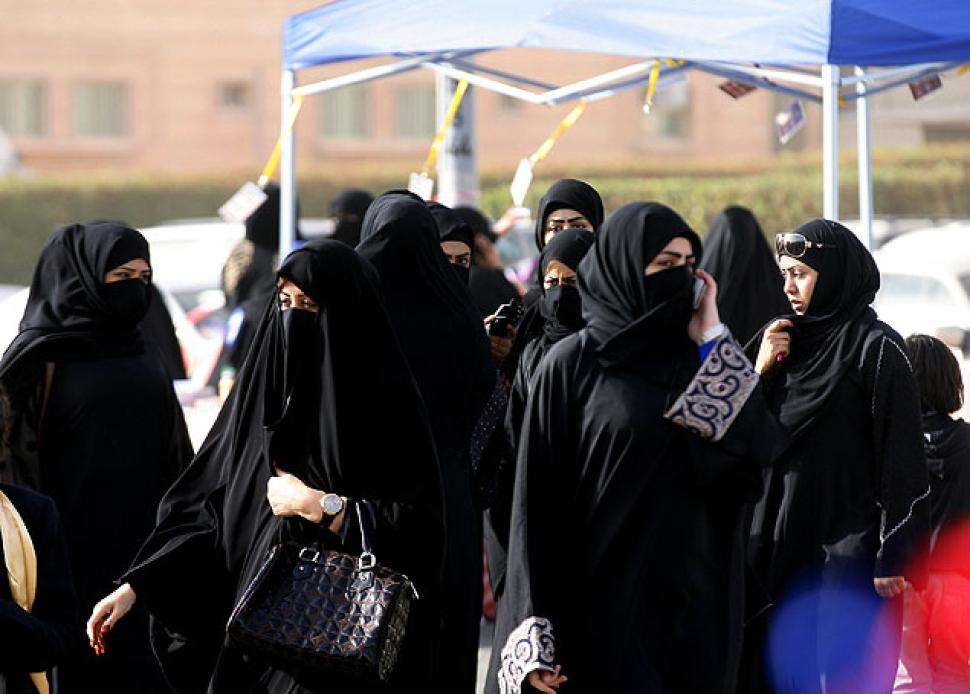Latest News
- In Just Two Years, The Civil Service Bureau Sees A Surge Of 10,0...
- Kuwait's Commitment To Combat Human Trafficking
- Kuwait's Announces Modernizing Renewable Energy Update
- Kuwait Society Of Engineers And Indian Embassy Address Engineer...
- IMF And World Bank Align On Kuwait's Economic Growth
- Nepalese Domestic Worker Commits Suicide
- Traffic Light Labeling For Packaged Foods Unveil By Kuwait
- Nazaha Unveils 49 Forged Certificates In 5 Years
- One Injured And Two Killed In An Abdali Road Accident
- Finance Ministry Approves ‘Afiya 4’ Health Insurance Tender With...
- KOC Clinches 63 Rig Contracts Worth $670 Million
- MoE Approves 169 Committees To Test 40,000 High School Students...
Kuwait Ranked Fourth Among 10 Least Gender Balanced Countries

‘Study’ shows Kuwait among ten least gender-balanced countries in a recent study conducted by researchers at The Peterson Institute for International Economics which is based in Washington DC.
The study presented data on the number and share of female corporate leaders by region, as well as the most and least gender-balanced countries. Feeding into a global debate over the scarcity of women in decision-making business roles, the study focused on about 22,000 publicly-traded companies in 91 countries and results showed that companies with 30 percent female executives rake in as much as six percentage points more in profits.
A total of 48 firms in Kuwait participated in the study which revealed that only five of the board members, seven executives and two chief executive officers in these firms are women while there is no female board chairperson. In addition, only five percent of the board members and seven percent of the executives in the participating firms are women.
The maternity leave is 10 weeks with 100 percent salary, parental leave is 17 weeks but it is granted only to mothers and there is no paternity leave. Meanwhile, participants in the study included 952 firms in the Middle East and North Africa (MENA) in which 601 or 12 percent of the board members are women; 34 or four percent of the board chairpersons; 1,123 or 16 percent of the executives; and 57 or seven percent of the chief executive officers or equivalent.
The overall results indicate the presence of women in corporate leadership positions can boost a firm’s performance, suggesting a reward for policies that facilitate women rising through corporate ranks. In an interview, Tyler Moran, one of the three co-authors of the study, said that “If you’re a firm and you’re discriminating against potential female leaders, that means you’re essentially doing a bad job of picking the best leader for your firm.”
Better
However, the study found while having women in executive ranks resulted in better profitability, female chief executive officers or board members did not have a statistically-significant impact on the bottom line. The findings further show that not all firms are created equal when it comes to fostering women leadership potential, with some more likely to encourage female managers depending on characteristics ranging from size to national policies such as family-leave.
Larger firms, for example, appear to appoint more women on boards and in upper executive ranks. Karyn Twaronite, a spokeswoman for professional services company EY, which helped fund the study, said the results would likely prompt discussion over the need for different kinds of workplace arrangements.
“This research sheds light on the importance of establishing modern workplace benefits, providing equitable sponsorship opportunities, and creating inclusive work environments, so that both men and women can have equal access to leadership positions, she said.
SOURCE : ARABTIMES
Trending News
-
 Eid Al Fitr 2024: Crescent Moon Not Sighted In Sau...
08 April 2024
Eid Al Fitr 2024: Crescent Moon Not Sighted In Sau...
08 April 2024 -
 Kuwait Implements Home Biometrics Services Ahead O...
14 April 2024
Kuwait Implements Home Biometrics Services Ahead O...
14 April 2024 -
 When Will Eid Al Fitr 2024 Take Place In Qatar, Ba...
08 April 2024
When Will Eid Al Fitr 2024 Take Place In Qatar, Ba...
08 April 2024 -
 On Sunday, The Meteorological Department Warns Of...
07 April 2024
On Sunday, The Meteorological Department Warns Of...
07 April 2024 -
 Kuwait Airways Provides Update On Flight Schedule...
14 April 2024
Kuwait Airways Provides Update On Flight Schedule...
14 April 2024 -
 Winners Of Kuwait National Assembly 2024 Elections
06 April 2024
Winners Of Kuwait National Assembly 2024 Elections
06 April 2024 -
 Kuwait Airways Introduces Convenient Home Luggage...
15 April 2024
Kuwait Airways Introduces Convenient Home Luggage...
15 April 2024 -
 Gathering For Eid Al-Fitr Prayers: Kuwaiti Citizen...
10 April 2024
Gathering For Eid Al-Fitr Prayers: Kuwaiti Citizen...
10 April 2024 -
 Bay Zero Water Park Kuwait: Summer Season Opens Ei...
11 April 2024
Bay Zero Water Park Kuwait: Summer Season Opens Ei...
11 April 2024 -
 An Egyptian Expat Dies At Kuwait's Airport
11 April 2024
An Egyptian Expat Dies At Kuwait's Airport
11 April 2024












Comments Post Comment